
June 9, 2010
The Road Warrior (1981)
Should I see it?
Yes, with caution.
Short Review: Is this how Australians behave when they think no one is watching?
The popular sequel to George Miller's apocalyptic action film classic Mad Max has the cranky ex-cop lone wolf Max coming to the aid of a group of survivors who are besieged by a violent motorcycle gang.
The survivors, fronted by their hopeful leader Pappagallo (Michael Preston) are protecting an oil refinery, the last vestige of the old Australian civilization. The wolf pack of psychotic, homosexual (or at least bisexual) bikers led by their evil leader "The Humungus" lust for the oil. Either the innocents or the wolves will remain, one group must yield. Into this conflict comes ol' Mad Max, the cold-hearted loner.
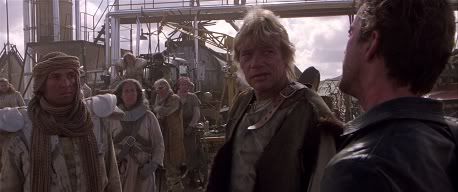
The film is not really about Mad Max (Mel Gibson). This film is really about Pappagallo. Max is an antihero and in that role, he is a selfish, uncaring villain. An antihero is not a hero – he’s a bad guy we have an emotional connection with. There is a reason why the refinery community members are dressed in whites and earth-tones and Max dons black – he’s not an valiant, he offers no hope, he's not a hero.
Pappagallo is faced with a choice. Stay with the refinery and die, or leave and probably die while escaping. His people are getting killed every day clinging to the refinery, a symbol of the Old World. They all dream of leaving and going onto paradise, but they fear the horde amassed behind the gates. One can make a connection here to our earthbound safety and the desire for the paradise of Heaven – the gang offers a dusty Valley of the Shadows for the innocents to pass through.
Pappagallo uses Max’s villainous greed and selfishness as a tool to save the rest of the community. Once the community decides to risk an escape, it is not long before Max volunteers to drive the tank truck at the front of the caravan. He does this for the for the same reason the evil gang will chase the tanker – selfishness and greed.
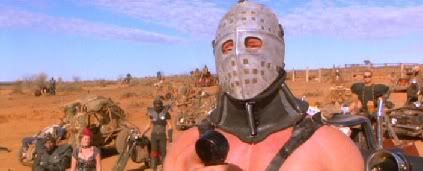
Max truly doesn’t care about the people, every choice he makes is for himself. He is stuck in the Old World and is unable to see the promise of paradise. He never crosses over to stand with the community members for any reason other than continuing his own self-obsessed journey. Pappagallo is the true sacrificial character in the story, as he dies helping Max lead the gang members away from the unprotected innocents.
Thanks to this sacrifice, the surviving members of the community are able to travel onto paradise, far beyond the distance any gang member can reach. Pappagallo uses the evil before him to produce a good. He lures the evil men (the gang members and Max) and through their sin and offers the innocent a way to live in the process.
This is an extraordinarily violent film. It is rare to see this kind of carnage in the film today – which is good. However, the violence is needed in this film to set up the stakes of what is waiting for the innocents if they leave their protected home.
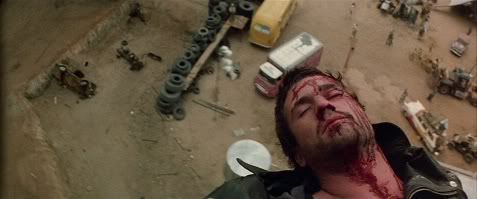
Beyond the death toll and the gore, there is a strong moral message about good and evil in this world. Evil is an aggressive weakness for this world played out and all sin, left unchecked, will cannibalize. Goodness comes from not only sacrifice, but also hope for what is to come. Without this hope we have no reason in this world. Our journeys become senseless. We can offer ourselves to the greater good like Pappagallo and help those around us or we can travel through life without purpose, holding out for the next day and nothing more – like Max. That is our choice.
Related Reviews:
Mel Gibson movies
Lethal Weapon (1987)
Signs (2002)
Other Critic's Reviews:
ReelViews
Roger Ebert
Click here to buy your copy of
You Are What You See and learn
to change the world from your couch
Labels: Bruce Spence, film, George Miller, Mel Gibson, movie review
Share
Previous Posts



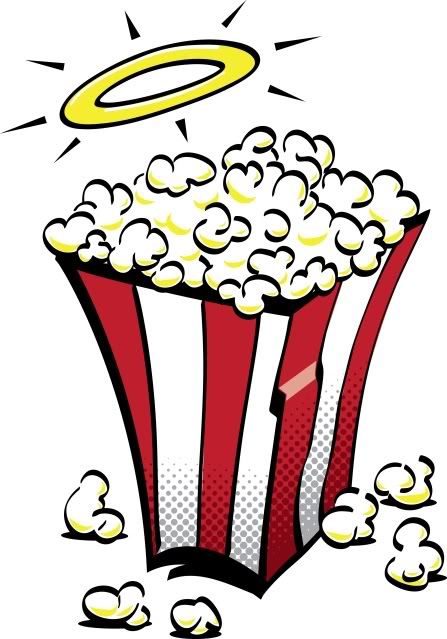
Good News Film Reviews LLC 2004-2010 - used with permission
Images, video and titles are the property of their respective copyright holders. Good News Film Reviews LLC claims no ownership or connection to them.
The views expressed on this site are not the opinion of any advertiser or external entity.
While we take care to only link to responsible entities, Good News Film Reviews LLC takes no responsibility for the content linked from this site. There are sharks in the waters. Surf at your own risk.
The Template is generated via PsycHo and is Licensed.
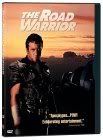





















0 Comments:
Post a Comment
<< Home